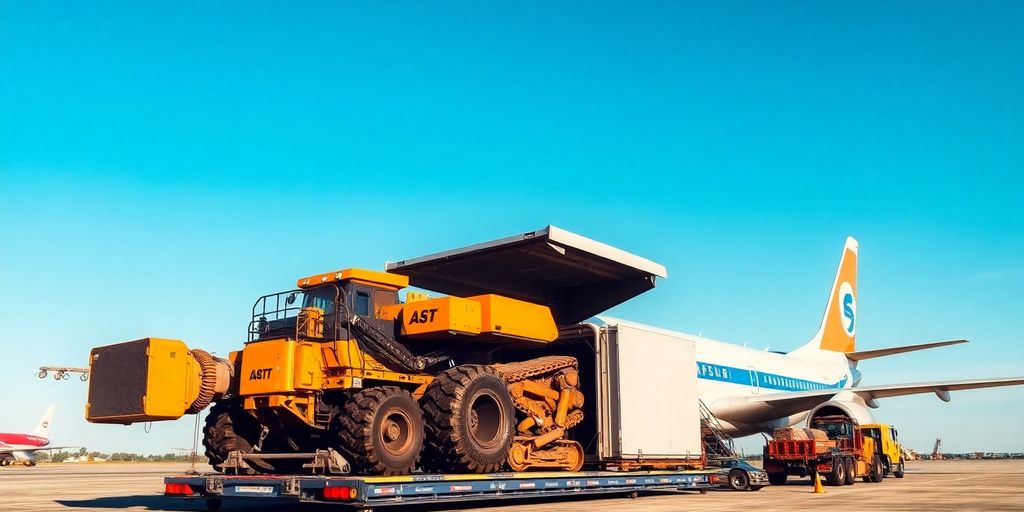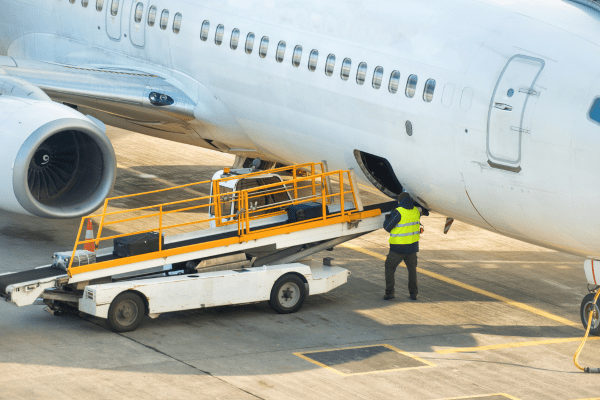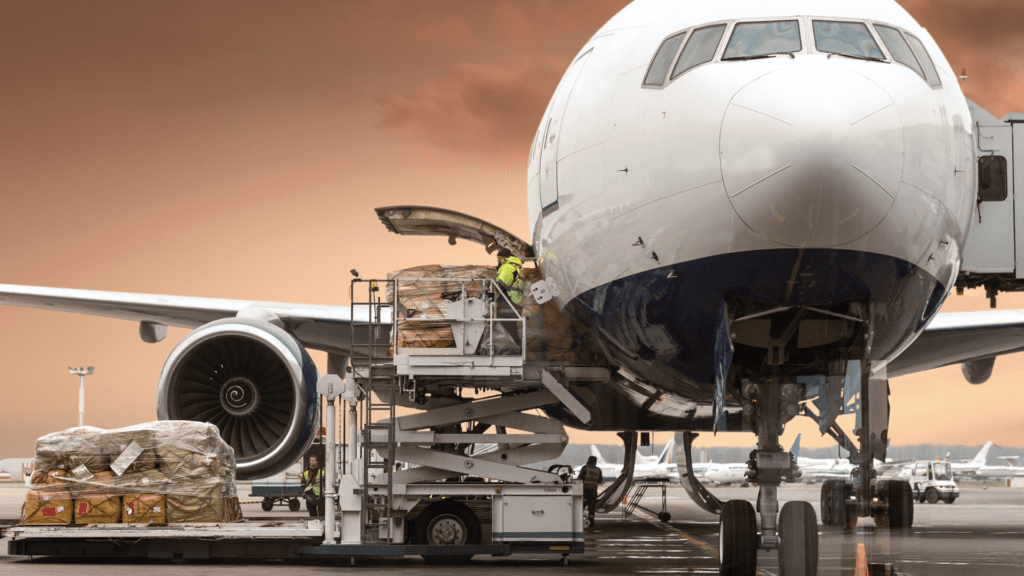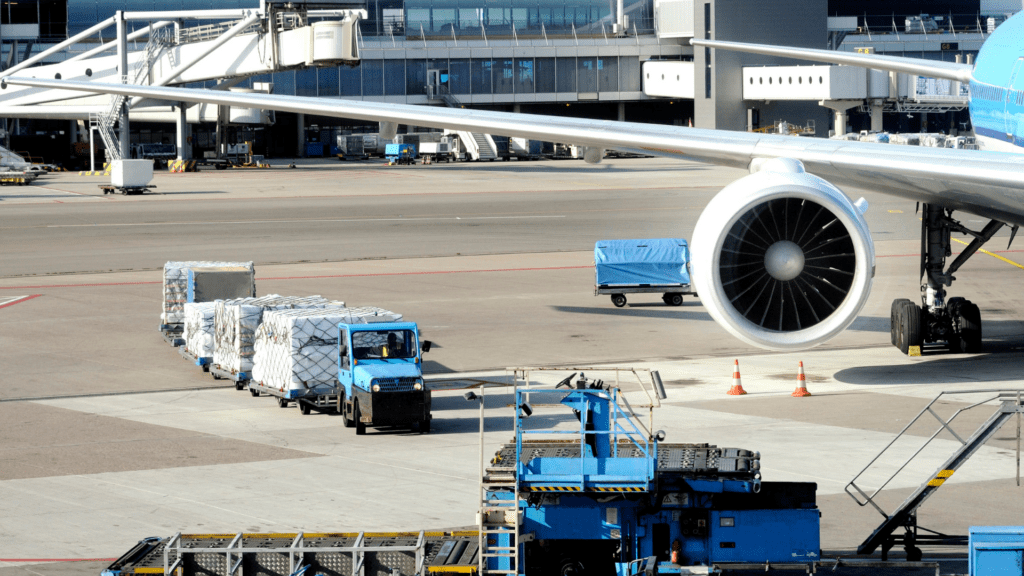In today’s fast-paced world, time-critical deliveries have become essential for many industries. Whether it’s medical supplies, automotive parts, or mining equipment, the need for swift and reliable transport is paramount. Air freight plays a crucial role in ensuring that these urgent shipments reach their destinations on time. In this article, we will explore the significance of air freight in meeting the demands of time-critical deliveries, particularly in the context of CASAIR’s services in regional Western Australia.
Key Takeaways
- Time-critical deliveries are vital for sectors like healthcare, automotive, and mining.
- Air freight offers unmatched speed and reliability compared to other transport methods.
- Choosing the right air freight partner is key for successful logistics.
- Technological advancements are enhancing the efficiency of air freight services.
- Understanding regulatory requirements is crucial for smooth air freight operations.
Understanding Time-Critical Deliveries
Defining Time-Critical Freight
So, what exactly are we talking about when we say time-critical deliveries? It’s more than just needing something delivered quickly. It’s about freight where delays can have serious consequences. Think about it: a factory line grinds to a halt because a part is missing, a patient needs a life-saving organ transplant, or a supermarket’s shelves are empty of fresh produce. These are all situations where time is of the essence. It’s about minimising downtime, preventing losses, and, in some cases, saving lives – air cargo services are essential for these types of deliveries.
Industries That Depend on Timely Deliveries
Loads of industries rely on things arriving right on time. Here are a few:
- Healthcare: Medications, medical equipment, and organs for transplant all need to be moved rapidly and reliably.
- Manufacturing: Production lines depend on just-in-time delivery of components to avoid costly shutdowns.
- Retail: Perishable goods, like fresh food, need to reach stores quickly to maintain quality and minimise waste.
- Aerospace: Aircraft parts often require urgent delivery to keep planes in service.
Time-critical deliveries are the backbone of many industries, ensuring smooth operations and customer satisfaction. Without reliable logistics, these sectors would face significant disruptions and financial losses.
Challenges in Time-Critical Logistics
Getting something somewhere fast sounds simple, but it’s not always easy. There are a bunch of things that can throw a spanner in the works. Weather can cause delays, especially with air freight. Customs compliance requirements can hold things up at borders. And then there’s just the general complexity of coordinating transport across different modes and regions. It takes careful planning, good communication, and a bit of luck to pull off time-critical deliveries without a hitch.
The Role of Air Freight in Logistics
Air freight plays a vital role in modern logistics, especially when time is of the essence. It’s not just about getting something from A to B; it’s about getting it there fast and reliably. Let’s look at why air freight is so important.
Speed and Efficiency of Air Freight
When you need something delivered urgently, air freight is often the best option. The speed of air transport is unmatched by other methods, making it ideal for time-sensitive goods. Think about it: a truck might take days to cross the country, while a plane can do it in hours. This speed translates to efficiency, reducing storage costs and minimising delays. For urgent logistics, this is a game-changer.
Comparing Air Freight to Other Transport Methods
Air freight isn’t the only way to move goods, but it has some clear advantages and disadvantages compared to other options like sea, rail, and road. Here’s a quick comparison:
|
Transport Method |
Speed | Cost | Reliability |
Best For |
|
Air Freight |
Very High | High | High | Time-sensitive, high-value goods |
|
Sea Freight |
Low |
Very Low |
Medium |
Large volumes, non-urgent deliveries |
|
Rail Freight |
Medium |
Medium |
Medium |
Bulk goods, long distances over land |
| Road Freight | Medium | Medium | Medium |
Short to medium distances, flexible routes |
As you can see, air freight excels in speed and reliability, but it comes at a higher cost. The choice depends on the specific needs of your shipment.
Reliability Factors in Air Freight
Reliability is key in air freight. Several factors contribute to this:
- Stringent security measures: Airports have tight security, reducing the risk of theft or damage.
- Advanced tracking systems: Real-time tracking lets you know exactly where your shipment is at all times.
- Established networks: Major air freight companies have well-established global networks, ensuring smooth transit.
Air freight’s reliability stems from a combination of security, technology, and infrastructure. These elements work together to minimise delays and ensure that goods arrive on time and in good condition.
While delays can still happen due to weather or other unforeseen circumstances, air freight generally offers a more reliable service than other transport methods, especially for urgent logistics where every minute counts.
CASAIR’s Commitment to Regional Needs
We understand that Western Australia has unique logistical challenges. It’s not just about getting something from A to B; it’s about doing it reliably, quickly, and with a deep understanding of the local landscape. That’s where CASAIR comes in. We’re not just another air freight company; we’re your neighbours, committed to supporting the industries and businesses that make this region thrive.
Supporting Industries in Western Australia
Western Australia’s economy is diverse, from mining and agriculture to tourism and technology. Each sector has specific needs when it comes to time-critical deliveries. For the mining industry, it might be urgent equipment parts to minimise downtime. For agriculture, it could be transporting fresh produce to market while it’s still at its peak. CASAIR is structured to meet these varied demands with tailored solutions. We’ve invested in the infrastructure and expertise to handle everything from oversized cargo to temperature-sensitive goods.
Tailored Solutions for Local Businesses
We know that one size doesn’t fit all. That’s why we work closely with each of our clients to understand their individual needs and develop a solution that works for them. This might involve:
- Customised delivery schedules to align with production cycles.
- Specialised handling procedures for delicate or high-value items.
- Real-time tracking and monitoring to provide complete visibility.
Our goal is to be more than just a service provider; we want to be a partner in your success. We achieve this by being flexible, responsive, and always willing to go the extra mile.
Case Studies of Successful Deliveries
Here are a few examples of how we’ve helped local businesses overcome logistical challenges:
- Mining: A remote mine site needed a replacement generator component urgently. We arranged for a helicopter charter to deliver the part directly to the site, minimising downtime and saving the company thousands of dollars.
- Agriculture: A fruit grower needed to get a shipment of premium mangoes to a market in Sydney within 24 hours. We used our express air freight service to ensure the fruit arrived fresh and on time, maximising their profit.
- Healthcare: A regional hospital needed a life-saving medication delivered urgently. We coordinated with our network of partners to get the medication to the hospital within hours, ensuring the patient received the treatment they needed.
These are just a few examples of how CASAIR is making a difference in Western Australia. We’re proud to be a part of this community, and we’re committed to providing the reliable, efficient, and tailored air freight solutions that local businesses need to thrive.
Choosing the Right Air Freight Partner
Finding the right air freight partner can feel like finding a needle in a haystack, but it’s essential for time-critical deliveries. You need someone reliable, experienced, and able to meet your specific needs. It’s not just about getting your goods from A to B; it’s about doing it quickly, safely, and within budget. So, how do you make the right choice?
Key Considerations for Selection
When you’re looking for an air freight partner, there are a few key things to keep in mind. It’s more than just price; it’s about the whole package. Here’s what I reckon you should be thinking about:
- Experience and Reputation: How long have they been in the game? What do other customers say about them? A solid reputation is worth its weight in gold.
- Network Coverage: Do they have a good network of destinations? Can they get your goods where they need to go, quickly and efficiently?
- Specialised Services: Do they offer any services that are particularly useful for your business? For example, if you’re shipping temperature-sensitive goods, do they have the right equipment and procedures in place?
- Customer Service: Are they responsive and helpful? Do they communicate well? Good customer service can make all the difference when things get tricky.
Evaluating Service Providers
Okay, so you’ve got a list of potential partners. Now it’s time to put them through their paces. Here’s how to evaluate them properly:
- Check their credentials: Are they properly licensed and insured? Do they comply with all the relevant regulations?
- Ask for references: Talk to some of their existing customers and see what they have to say. Don’t be afraid to ask tough questions.
- Get quotes from multiple providers: Compare prices but also compare the services they offer. The cheapest option isn’t always the best.
- Visit their facilities: If possible, take a tour of their warehouses and offices. This will give you a better sense of how they operate.
Choosing an air freight partner is a big decision, so don’t rush it. Take your time, do your research, and make sure you’re comfortable with your choice. It’s an investment in your business, so treat it that way.
Building Long-Term Partnerships
Finding a good air freight partner is just the first step. The real goal is to build a long-term relationship that benefits both of you. Here’s how to do it:
- Communicate openly and honestly: Let your partner know what your needs are, and be upfront about any problems or concerns.
- Be flexible and willing to compromise: Things don’t always go according to plan, so be prepared to adapt.
- Provide regular feedback: Let your partner know what they’re doing well, and what they could be doing better.
- Treat them as a partner, not just a supplier: Work together to find solutions that benefit both of you. This collaborative approach can really boost air support and improve overall efficiency.
By following these tips, you can find the right air freight partner and build a relationship that will help your business thrive.
Technological Advancements in Air Freight
Air freight is constantly evolving, and technology is at the forefront of these changes. These advancements are not just about faster planes; they’re about smarter, more efficient, and more reliable ways to move goods across the globe. For businesses in Western Australia, understanding these changes is key to staying competitive and making the most of the benefits of using air freight for urgent deliveries.
Innovations Enhancing Delivery Speed
It’s not just about faster aircraft, although that helps! A lot of the speed gains come from optimising processes on the ground. Think about automated loading systems that reduce turnaround times at airports, or advanced sorting technologies that get your package on the right flight, quicker. These innovations directly impact how air freight supports supply chain speed, ensuring your time-critical deliveries arrive when they need to.
Tracking and Monitoring Solutions
Real-time tracking has become an expectation, not a luxury. Modern air freight relies on sophisticated sensor technology and GPS to provide end-to-end visibility. You can now monitor the temperature, humidity, and even the handling of your goods throughout the journey. This level of transparency is invaluable for sensitive cargo, giving you peace of mind and allowing you to proactively address any potential issues.
Impact of Technology on Reliability
Technology is also making air freight more reliable. Predictive analytics can forecast potential delays due to weather or congestion, allowing for proactive rerouting. Improved communication systems between all parties involved – from the shipper to the airline to the customs broker – minimise the risk of errors and miscommunication.
By using technology to improve reliability, air freight companies are reducing the risk of delays and damage, making it a more dependable option for time-critical deliveries. This is especially important for industries like healthcare and manufacturing, where even a small delay can have significant consequences.
Here’s a quick look at how technology is boosting reliability:
- Predictive Analytics: Forecasting potential delays.
- Improved Communication: Streamlining information flow.
- Automated Systems: Reducing human error in handling.
Regulatory Considerations in Air Freight
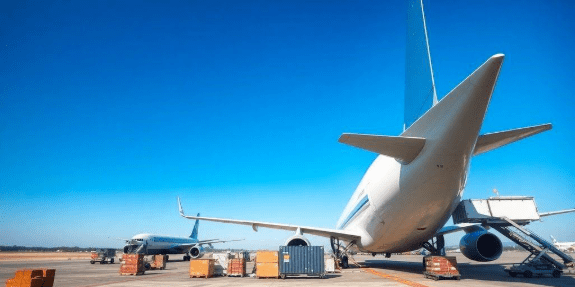
Air freight, especially when dealing with time-critical deliveries, isn’t just about speed; it’s also about adhering to a complex web of regulations. Understanding these rules is vital for smooth and compliant operations. Let’s break down some key areas.
Understanding Compliance Requirements
Compliance in air freight is more than just ticking boxes; it’s about ensuring safety, security, and adherence to international standards. This includes regulations set by bodies like the Civil Aviation Safety Authority (CASA) in Australia, as well as international organisations like the International Air Transport Association (IATA). What does this mean for you? Well, it covers everything from how goods are packaged and labelled to the documentation required for different types of cargo. For example, dangerous goods have very strict rules about packaging, labelling, and the aircraft they can travel on. Failing to comply can lead to delays, fines, or even legal action. It’s a headache you definitely want to avoid. It’s important to understand the air freight services available to ensure compliance.
Navigating Customs and Duties
Customs and duties can be a real sticking point in international air freight. Each country has its own rules about what can be imported, what taxes or tariffs apply, and what documentation is needed. Getting this wrong can cause significant delays and unexpected costs.
Here’s what you need to know:
- Accurate Documentation: Make sure your commercial invoice, packing list, and other documents are complete and accurate. Discrepancies can raise red flags.
- Harmonised System (HS) Codes: Correctly classifying your goods using HS codes is essential for determining the applicable duties and taxes.
- Import Permits: Some goods may require import permits or licenses, depending on the country and the nature of the goods.
Dealing with customs can feel like navigating a maze. It’s often worth seeking advice from a customs broker who can guide you through the process and ensure compliance.
Impact of Regulations on Delivery Times
Regulations can have a direct impact on how quickly your goods reach their destination. Customs inspections, security checks, and compliance procedures all take time. It’s important to factor these potential delays into your delivery schedules. Here are a few things that can impact delivery times:
- Security Screening: Increased security measures, especially for air cargo, can add time to the process.
- Customs Clearance: Delays at customs can occur due to incomplete documentation, incorrect classifications, or random inspections.
- Regulatory Changes: New or updated regulations can sometimes cause temporary disruptions as businesses adjust to the changes.
Understanding these regulatory considerations is key to ensuring your time-critical deliveries arrive on time and without any nasty surprises. It might seem complex, but with the right knowledge and preparation, you can navigate the regulatory landscape with confidence.
Future Trends in Time-Critical Deliveries

The world of time-critical deliveries is constantly evolving, driven by technological advancements and changing customer expectations. Let’s have a look at what the future might hold for fastest shipping methods for time-sensitive cargo.
Emerging Technologies in Air Freight
Air freight is set to be revolutionised by emerging technologies. We’re talking about things like drones for last-mile delivery, which could seriously cut down on transit times in urban areas. Automation in warehouses and cargo handling will also become more common, speeding up the entire process. These innovations aim to make air freight faster, more efficient, and more reliable.
- Drones for last-mile delivery
- Automated cargo handling systems
- AI-powered route optimisation
Sustainability in Air Transport
Sustainability is no longer a buzzword; it’s a necessity. The air freight industry is under increasing pressure to reduce its carbon footprint. This means we’ll see more investment in sustainable aviation fuels (SAF), electric aircraft for shorter routes, and more efficient aircraft designs. Airlines are also exploring carbon offsetting programmes to mitigate their environmental impact. It’s a long road, but the industry is moving towards a greener future.
The push for sustainability isn’t just about being environmentally responsible; it’s also about meeting customer demand. Many businesses are now prioritising partners who can demonstrate a commitment to reducing their environmental impact.
Predictions for the Future of Logistics
Looking ahead, the future of logistics will be shaped by several key trends. We can expect to see greater integration of technology, with AI and machine learning playing a bigger role in optimising supply chains. Real-time tracking and monitoring will become even more sophisticated, providing businesses with unprecedented visibility over their shipments. And as e-commerce continues to grow, the demand for tailored solutions for local businesses will only increase.
- Increased use of AI and machine learning
- More sophisticated real-time tracking
- Growing demand for e-commerce logistics
As we look ahead, the world of time-sensitive deliveries is changing fast. New technologies and smarter systems are making it easier to get packages where they need to go, right on time. Companies are now using drones and advanced tracking tools to ensure that deliveries are quicker and more reliable than ever. If you want to stay updated on these exciting changes and how they can benefit you, visit our website for more information!
Wrapping Up: The Role of Air Freight in Urgent Deliveries
In conclusion, air freight is a game-changer for industries that need things done quickly. Whether it’s getting medical supplies to a hospital or parts to a factory, the speed and reliability of air transport can’t be beaten. Companies like CASAIR are stepping up to meet these urgent needs, especially in regional WA, where every minute counts. When choosing an air freight partner, it’s important to consider their track record, service options, and how well they understand your specific requirements. In a world where time is often of the essence, having the right air freight service can make all the difference.
Frequently Asked Questions
What is time-critical freight?
Time-critical freight refers to goods that need to be delivered very quickly, often within a specific time frame. This is important for industries like healthcare, mining, and automotive, where delays can lead to serious issues.
Which industries rely on timely deliveries?
Several industries depend on quick deliveries, including the medical field for urgent supplies, mining for equipment parts, and automotive for just-in-time manufacturing.
How does air freight compare to other transportation methods?
Air freight is usually faster than road or sea transport, making it ideal for urgent shipments. While it may be more expensive, the speed and reliability often justify the cost for time-sensitive deliveries.
What challenges do businesses face with time-critical logistics?
Businesses often struggle with delays, unexpected costs, and managing inventory. Weather can also impact air freight schedules, making planning crucial.
How does CASAIR support local businesses in Western Australia?
CASAIR provides tailored air freight solutions to meet the specific needs of businesses in Western Australia, ensuring quick and efficient delivery of goods.
What should I consider when choosing an air freight partner?
When selecting an air freight partner, consider their reliability, speed of delivery, customer service, and experience in handling your type of cargo.



